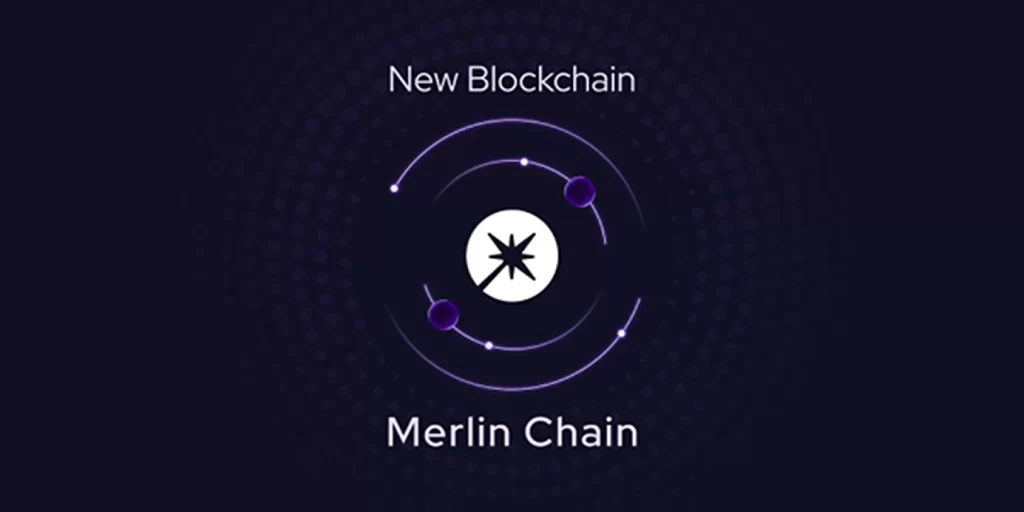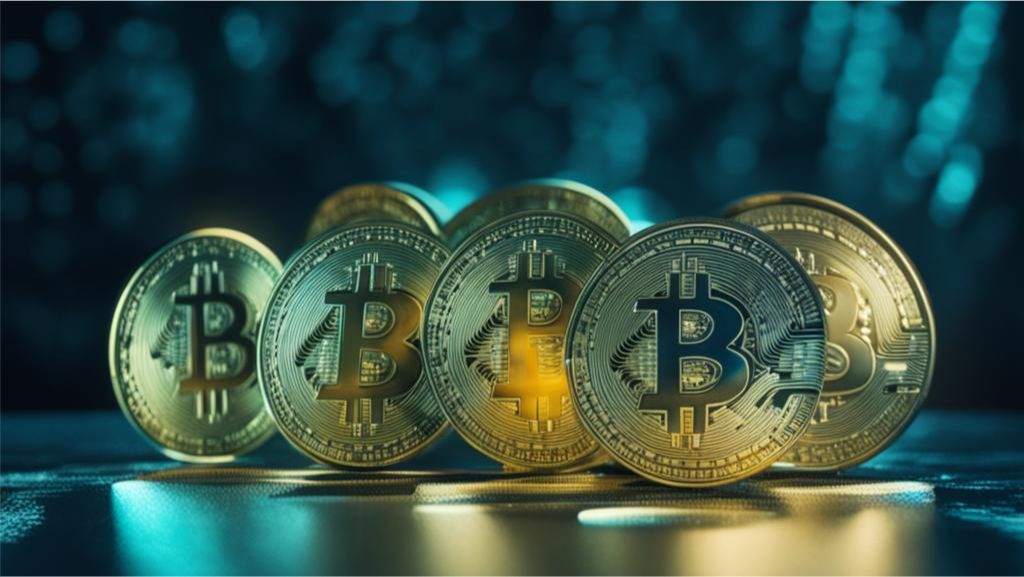Robinhood, the esteemed American trading platform renowned for its stock and cryptocurrency services, has announced the launch of its much-anticipated Android version of its self-custody crypto wallet on March 20, 2024.
The announcement, delivered through Johann Kerbrat, the crypto general manager at Robinhood via his X account, heralds a pivotal expansion in the company’s cryptocurrency services.
This new development is particularly significant for Android users, who represent about 70% of the global mobile operating system market, thereby markedly broadening the accessibility of cryptocurrency tools.
The Android version of the wallet mirrors its iOS counterpart, which was introduced in 2023 and quickly gained traction, with extensive downloads in over 140 countries.
A noteworthy feature of the Android wallet is its support for the widely favored meme coin, Shiba Inu (SHIB), which highlights Robinhood’s commitment to catering to the varied interests of crypto enthusiasts.
Robinhood’s initiative to launch a self-custody crypto wallet for Android users aligns with its mission to democratize cryptocurrency trading.
By enabling users to have full control over their private keys, the wallet allows for the direct storage, sending, and receiving of cryptocurrencies like Bitcoin (BTC), Ethereum (ETH), and others across several blockchains.
READ MORE: SEC Delays Decision on Ether ETFs, Casting Doubt on Approval Odds Amidst Growing Skepticism
Moreover, it integrates with the 0x API and LI.FI for users interested in swapping cryptocurrencies within the Ethereum, Arbitrum, and Polygon networks, offering a smooth and flexible experience.
This advancement is also significant against the backdrop of Robinhood’s centralized exchange platform, where Shiba Inu emerges as a dominant asset.
According to Arkham Intelligence, Robinhood users possess an impressive 39.60 trillion SHIB tokens, equating to a collective value exceeding $1.06 billion, positioning Shiba Inu as the third most-held cryptocurrency on the platform, trailing only behind Bitcoin and Ethereum.
The inclusion of Shiba Inu support in the Robinhood Android wallet underscores the platform’s dedication to providing comprehensive services for crypto traders and enthusiasts.
By facilitating access to self-custody solutions, Robinhood is taking a substantial step towards enhancing the accessibility and adoption of cryptocurrency trading for a broader audience, further solidifying its role in the expanding digital currency landscape.
To submit a crypto press release (PR), send an email to sales@cryptointelligence.co.uk.
In Argentina, the recent surge in Bitcoin demand reflects the population’s attempts to safeguard their savings amid the peso’s rapid devaluation.
Bloomberg highlighted this trend on March 20, citing a report from Lemon Cash, a cryptocurrency exchange, which recorded an unprecedented interest in Bitcoin.
In the week ending March 10, nearly 35,000 Argentines turned to Bitcoin, marking a twofold increase in the cryptocurrency’s weekly purchase rate compared to the previous year.
The Argentine peso has suffered a significant decline over the past year, with its value against the US dollar plummeting fourfold, from 0.0049 USD in March 2023 to 0.0012 USD.
This depreciation has been a key driver for many Argentines to look for more stable investment alternatives, such as Bitcoin.
Lemon Cash isn’t the only platform experiencing increased demand for cryptocurrencies.
Other major Argentine exchanges like Ripio and Belo have reported similar trends. Belo’s CEO, Manuel Beaudroi, observed a shift in preference from stablecoins to Bitcoin, attributing this change to the cryptocurrency’s recent price rally.
Beaudroi explained, “The user decides to buy Bitcoin when they see the news that the currency is going up, while stablecoin is more pragmatic and many times used for transactional purposes, as a vehicle to make payments abroad.”
Furthermore, he mentioned that Belo has witnessed a tenfold increase in transactions involving Bitcoin and Ether in early 2024 compared to the same timeframe in the previous year.
Despite the burgeoning interest in Bitcoin, there’s still a notable inclination towards stablecoins.
Argentines are reportedly bypassing well-known exchanges to purchase USD stablecoins through “crypto caves,” unregulated markets that offer an escape from stringent currency controls and inflation.
The adoption of digital currency in Argentina is gradually extending beyond investment purposes.
In December 2023, Diana Mondino, minister of foreign affairs, international trade, and worship, announced a decree facilitating the use of Bitcoin and other cryptocurrencies under specific conditions as part of economic reform efforts.
This led to a groundbreaking rental agreement in Rosario, where a tenant agreed to pay their rent in Bitcoin, showcasing the growing practical use of digital currencies in everyday transactions.
To submit a crypto press release (PR), send an email to sales@cryptointelligence.co.uk.
The Floki Inu development team has announced its 2024 roadmap, highlighting ambitious plans to expand the utility and features of the dog-themed memecoin.
Among the key initiatives is the introduction of regulated digital banking accounts, allowing users to create and manage their finances using FLOKI tokens.
This development aims to bridge the gap between traditional banking and cryptocurrencies, offering SWIFT payments and SEPA IBANs through a partnership with a licensed fintech firm in countries including Canada, Spain, Dominica, Australia, and the UAE.
Another significant step is the planned integration with the Venus decentralized finance (DeFi) protocol.
This move is expected to improve liquidity and enable FLOKI holders to use their tokens as collateral for borrowing assets like Maker (DAI), Circle’s USDC stablecoin, BNB (BNB), and Ether (ETH).
By embedding Venus Markets directly into Floki’s user interface, the team seeks to provide seamless access to DeFi services, thus deepening Floki Inu’s integration with the ecosystem.
The roadmap also unveils the forthcoming Floki Debit Card, designed to link digital banking accounts to a physical card.
This will allow users to easily convert and spend their FLOKI tokens in traditional currencies such as the euro (EUR) and U.S. dollars (USD), promoting the adoption of cryptocurrency in everyday transactions.
Further, Floki Inu’s initiative to list its native token on the Venus Core Pool awaits governance approval.
READ MORE: Bitcoin Rallies Amid Fed’s Interest Rate Decision, Showcasing Resilience Against ETF Outflows
This strategy is crafted to bolster liquidity and mirror the financial dynamics of well-established cryptocurrencies, enhancing the utility of FLOKI tokens.
The development team is also preparing to launch a cross-chain trading bot for Telegram and Discord, utilizing FLOKI tokens for transactions across major blockchain networks.
This bot is part of a strategy to reduce the token’s supply through a deflationary mechanism, where half of the transaction fees are used to purchase and burn FLOKI tokens.
Finally, the highly anticipated Valhalla mainnet launch is set to introduce an array of features including on-chain gaming, a PlayToEarn system, customizable NFTs, and an expansive metaverse environment.
This represents a major milestone in Floki Inu’s journey towards creating a comprehensive utility and gaming platform.
Amid these developments, the Hong Kong Securities and Futures Commission issued a warning about Floki Inu’s staking programs, indicating they are not authorized for public sale in Hong Kong despite offering annualized returns between 30% and over 100%.
This caution underscores the importance of regulatory compliance in the rapidly evolving cryptocurrency landscape.
To submit a crypto press release (PR), send an email to sales@cryptointelligence.co.uk.
Coinbase has recently underscored the remarkable evolution of Dogecoin, from a meme-inspired currency to a mainstay in the cryptocurrency domain.
This recognition of Dogecoin’s “enduring popularity” is leading the exchange to introduce futures trading for the cryptocurrency.
In its communications with the United States Commodity Futures Trading Commission (CFTC) on March 7, Coinbase Derivatives expressed intentions to unveil cash-settled futures contracts for Dogecoin, along with Litecoin and Bitcoin Cash, aiming for an April 1 launch date.
Highlighting an unconventional path to market expansion, Coinbase mentioned its strategy to leverage the “self-certification” process for these futures contracts, adhering to CFTC’s regulatory framework, without waiting for formal approval.
The company stated, “Coinbase Derivatives […] hereby submits for self-certification its initial listing of the Dogecoin Futures contract to be offered for trading on the Exchange on or after April 1, 2024.”
This move reflects Coinbase’s belief in Dogecoin’s significant transformation and its established role within the crypto industry.
The price of DOGE, in response to these developments, surged by 17%, showcasing its trading value at $0.15.
The decision to list futures contracts for Dogecoin, Litecoin, and Bitcoin Cash sparked varied reactions among market observers and social media commentators.
Some analysts perceive this as a strategic attempt by Coinbase to challenge the Securities and Exchange Commission (SEC) in its classification of crypto assets.
Bloomberg exchange-traded fund analyst James Seyffart suggested on X (formerly Twitter) that this could be a maneuver to prevent these cryptocurrencies from being classified as securities, especially those based on the Bitcoin’s proof-of-work consensus mechanism.
Seyffart’s observation points to a broader strategy of influencing how regulatory bodies view crypto assets following the approval of spot Bitcoin ETFs.
Coinbase’s venture into the derivatives market traces back to its 2022 acquisition of FairX, a CFTC-regulated derivatives exchange, aiming to democratize the derivatives trading landscape for its vast retail customer base.
This initiative is part of Coinbase’s broader mission to make derivative markets more accessible and understandable for everyday investors, further cementing its position as a pioneering platform in the cryptocurrency trading arena.
To submit a crypto press release (PR), send an email to sales@cryptointelligence.co.uk.
The Pyth oracle’s integration with Merlin Chain, a Layer 2 solution on Bitcoin that combines ZK-Rollup technology, a decentralized oracle network, and BTC fraud detection modules, marks a significant leap forward. This move underscores Pyth Price Feeds’ position as a critical resource for developers in the burgeoning Bitcoin ecosystem.
“The team is looking forward to join hands with Pyth, a leading oracle, to help build the foundation of Merlin Chain. With the price feeds and market data Pyth provides, we are now ready to welcome the next generation of Bitcoin and DeFi to Merlin Chain,” Jeff, Founder of BitmapTech and Merlin Chain, said.
With Pyth Price Feeds going live on Merlin Chain, developers now have unrestricted access to over 400 real-time data feeds from a vast array of asset classes, enhancing the security and functionality of diverse smart contract applications, including trading, lending, and borrowing platforms. Pyth’s unique pull oracle architecture offers an efficient way for applications to obtain the latest price data, ensuring accuracy and timeliness for end-users.
Merlin Chain stands out as a Layer 2 enhancement for Bitcoin, focusing on enriching Bitcoin’s Layer 1 assets, protocols, and products with advanced technologies. As a branch of Bitmap Tech, Merlin Chain brings significant credibility and innovation to the Bitcoin ecosystem, highlighted by its successful BRC-420 “Blue Box” collection among the Ordinals.
The Pyth Network, known for delivering secure, low-latency financial data, gathers proprietary data from leading exchanges and trading firms, making it a backbone for smart contracts and decentralized applications. In a relatively short span, Pyth has managed to secure over $2 billion in value, now supporting more than $3 billion across numerous markets. With its comprehensive coverage across cryptocurrencies, stocks, ETFs, forex pairs, and commodities, Pyth has become instrumental in powering over $120 billion in trading volume across more than 50 blockchain ecosystems.
Kyle Davies, co-founder of the now-defunct crypto hedge fund Three Arrows Capital (3AC), expressed no regret over the billions in investor funds lost due to the company’s bankruptcy.
In a March 19 episode of the Unchained Podcast, Davies maintained that the failure of 3AC and the subsequent backlash did not tarnish his professional reputation.
He stated, “Am I sorry for a company going bankrupt? No. Like, companies go bankrupt all the time,” highlighting his lack of remorse with laughter.
Discussing future endeavors, Davies hinted at advising potential successors on how to better manage a bankruptcy scenario, suggesting a nonchalant approach to the dissolution of his hedge fund.
He also revealed his intention to steer clear of Singapore, fearing possible incarceration, and noted that he has been moving between Europe and Asia, with a recent stay in Portugal.
In April 2023, amidst the fallout, Davies and his partner Su Zhu initiated OPNX, a venture combining bankruptcy claims processing with a crypto exchange.
Davies praised the launch as “very impressive,” asserting his enduring respect within the cryptocurrency community.
However, the venture was short-lived, with OPNX announcing its closure by February 14.
Davies countered claims of non-cooperation with the liquidators, Teneo, overseeing 3AC’s dissolution, describing such allegations as overstated.
He argued that portraying them as uncooperative was a strategic move by the liquidators to reclaim more assets.
READ MORE: Binance Offers Up to $5 Million Reward for Insider Trading Tips Amid Memecoin Listing Controversy
Despite these assertions, Davies and Zhu faced subpoenas via Twitter on January 5, 2023, for evading communication and not sufficiently cooperating with the liquidation process.
In the wake of 3AC’s collapse in 2022, a British Virgin Islands court froze $1.14 billion of Davies and Zhu’s assets.
Teneo has estimated the outstanding debt to 3AC creditors at approximately $3.3 billion and is actively seeking $1.3 billion directly from the co-founders.
This pursuit comes after allegations that Davies and Zhu engaged in excessive borrowing against investor funds post-insolvency.
Adding to their challenges, Singapore’s central bank imposed nine-year prohibition orders against Davies and Zhu in September of the previous year for alleged breaches of the nation’s securities regulations while at the helm of 3AC.
To submit a crypto press release (PR), send an email to sales@cryptointelligence.co.uk.
The recent surge in popularity and value of meme coins such as Shiba Inu (SHIB), Dogwifhat (WIF), and BOME has sparked concerns from Ki Young Ju, CEO of CryptoQuant.
Ju argues that the viral and speculative nature of these cryptocurrencies poses a significant threat to the integrity and advancement of the cryptocurrency sector.
He points out the detrimental effect of these billion-dollar meme coins on legitimate projects that aim to innovate within the industry.
Ju’s frustration stems from the speculative frenzy similar to the initial coin offering (ICO) boom, which ended in substantial losses for many investors.
Ju counters the argument that meme coins might serve as an entry point for newcomers into the crypto space by highlighting the risks associated with their speculative nature.
He draws parallels with the ICO craze of 2018, noting that many projects failed to deliver real value.
READ MORE: Bitcoin Nears $60K Amid Weekend Sell-Off; Market Eyes ETF Resurgence and Futures Gap for Recovery
Ju is particularly critical of the lack of industry leadership advocating for genuine product development, observing a worrying trend towards gambling rather than innovation and the creation of tangible solutions.
Despite some viewing meme coins as an introduction to cryptocurrency, Ju warns of their potential harm, emphasizing the need for leadership in the industry.
He admires figures like Changpeng Zhao, the former CEO of Binance, for their commitment to driving the industry forward with innovative and substantial products.
The discussion also touches on Zhao’s current situation, awaiting a court decision while being restricted from leaving the United States, underscoring the importance of responsible leadership in the cryptocurrency field.
Ju’s commentary reflects a call for a shift in focus towards sustainable development and away from speculative ventures that could undermine the crypto industry’s legitimacy.
To submit a crypto press release (PR), send an email to sales@cryptointelligence.co.uk.
BlackRock‘s spot Bitcoin ETF is on track to surpass Grayscale’s Bitcoin holdings, potentially becoming the largest institutional holder of Bitcoin in the coming weeks.
BlackRock’s ETF, the iShares Bitcoin Trust, currently holds 238,500 Bitcoin, valued at $15.5 billion, with daily inflows averaging $274 million or around 4,120 Bitcoin.
In contrast, Grayscale’s Bitcoin Trust (GBTC) has 350,252 BTC, worth $23 billion, but faces daily outflows of about $277 million, equivalent to 4,140 BTC.
Without significant changes in these trends, BlackRock is expected to overtake Grayscale by April 11, a milestone that could be reached even sooner if BlackRock’s inflows return to the previous week’s average of 7,200 Bitcoin daily.
George Tung, a YouTuber known for his channel CryptosRUs, predicted, “BlackRock is going to flip Grayscale soon,” estimating the shift to occur within the next two weeks.
This development underscores the dynamic landscape of Bitcoin investment, with BlackRock poised to claim the title of the world’s largest institutional Bitcoin holder.
The narrative of this transition is further complicated by the record outflows from GBTC, which experienced its largest single-day loss of $643 million on March 18.
These outflows have raised concerns about potential impacts on Bitcoin’s price, though Senior Bloomberg ETF analyst Eric Balchunas remains optimistic, suggesting the exodus could end within weeks.
He also hinted that the recent surge in outflows might be linked to the financial troubles of crypto firms like Genesis and Digital Currency Group.
Adding to BlackRock’s momentum, its ETF recently surpassed MicroStrategy’s Bitcoin holdings, making it a significant player in the crypto space.
As of now, MicroStrategy holds 214,246 BTC, following a recent acquisition of 9,000 BTC.
This shift not only highlights BlackRock’s expanding influence in the cryptocurrency market but also marks a pivotal moment in the institutional adoption of Bitcoin, reflecting broader trends and challenges within the crypto industry.
To submit a crypto press release (PR), send an email to sales@cryptointelligence.co.uk.
In today’s interconnected world, businesses need agile and innovative financial solutions to thrive in a competitive landscape. Enter the startup Banxe, the trailblazing online bank offering a plethora of advantages for businesses looking to streamline their financial operations and unlock new growth opportunities. Let’s explore the service and understand more about what they offer.
What is Banxe?
Banxe distinguishes itself in the competitive financial services sector by offering a unique combination of traditional banking conveniences and advanced cryptocurrency solutions. It purports to deliver a seamless and secure banking experience—supported by its comprehensive suite of tools tailored to streamline financial operations, covering everything from multi-currency payments to cryptocurrency transactions.
Based on reviews, Banxe’s services strictly adhere to regulatory standards, hold licenses in various countries and uphold the highest levels of security and reliability. Their reputation for excellence is further bolstered by industry recognition and positive client testimonials, underscoring its status as a reputable partner in the evolving landscape of financial technology. Clients can seemingly rely on its innovative solutions, integrity and dedication to meeting their diverse financial needs.

Multi-Currency Payment Account with IBAN
Banxe empowers businesses with a multi-currency payment account complete with IBAN, facilitating effortless management of international transactions. Whether sending payments to suppliers abroad or receiving funds from global clients, businesses can navigate cross-border payments with ease, eliminating the complexities associated with currency conversion and ensuring seamless transactions across borders.
Corporate Cryptocurrency Wallet
Embracing the digital revolution, Banxe crypto offers businesses a corporate cryptocurrency wallet that supports over 350 cryptocurrencies. From Bitcoin to Ethereum and beyond, businesses can diversify their payment options and engage in a wide range of transactions, including investments, cross-border payments and vendor settlements.
Mass Payment
Efficiency is key in business operations, and the startup Banxe’s mass payment feature delivers just that. Streamline payroll processing, vendor payments and affiliate payouts with ease, sending funds to multiple recipients in just a few clicks. Whether processing bulk payments for employees or dispersing royalties to content creators, Banxe’s mass payment feature simplifies complex financial tasks.
Crypto Processing
As cryptocurrency adoption continues to soar, Banxe crypto empowers businesses to embrace the future of payments with its Crypto Processing solution. Securely accept cryptocurrency payments from customers worldwide, expanding your customer base and staying at the forefront of digital payment trends.
Regulatory Compliance & Accolades
Banxe’s commitment to excellence extends beyond its innovative suite of financial solutions, as the services provided on the platform hold regulatory licenses in various countries. From the UK Financial Conduct Authority to regulatory bodies in Europe, Southeast Asia and beyond, Banxe operates with integrity and compliance, ensuring the highest standards of security and trust for its users.
In addition to its regulatory licenses, the services provided by Banxe have garnered recognition in the industry for their innovative contributions to financial technology. From prestigious awards honoring its cutting-edge solutions to glowing testimonials from satisfied clients in reviews, Banxe has solidified its reputation as a trusted partner for businesses seeking modern financial solutions.
In conclusion, opening a business account with Banxe offers unparalleled advantages for businesses of all sizes. From seamless international transactions to cutting-edge cryptocurrency solutions, the startup Banxe empowers businesses to thrive in a rapidly evolving financial landscape. It’s definitely worth exploring their service as a possible partner for your business.
In a startling revelation, Bryan Pellegrino, the co-founder and CEO of LayerZero, has publicly accused Kyle Davies, co-founder of the now-collapsed Three Arrows Capital (3AC), of attempting to sway his company into transferring its entire treasury to 3AC shortly before its liquidation.
Pellegrino made these claims in a response to Davies’ comments on a podcast, via an X post.
According to Pellegrino, Davies sought to secure LayerZero’s treasury by “promising better rates than other borrowers as a last-gasp effort,” showcasing a desperate move ahead of 3AC’s financial turmoil.
The accusations surfaced after Davies, on the Unchained YouTube interview podcast, refrained from issuing an apology to investors for 3AC’s downfall, sparking controversy.
Pellegrino’s assertions shed light on 3AC’s strategy of soliciting loans from various entities despite its impending insolvency, a tactic Pellegrino criticized for exploiting personal and professional relationships, including those with prominent figures like BitMex co-founder Arthur Hayes.
The crypto community and observers have rallied behind Pellegrino, condemning Davies’ conduct and the broader implications of 3AC’s practices, which relied on deceitful loan acquisition.
The backlash also saw X users, including @basedkarbon, criticizing Davies’ lack of tact in handling the situation.
Three Arrows Capital, founded by Davies and Su Zhu in 2012, managed an impressive $10 billion in assets by 2021.
However, the firm’s fortunes plummeted to $3 billion by April 2022, primarily due to the catastrophic fallout from the TerraUSD stablecoin crash, triggering a widespread crypto market crash.
The firm’s decline culminated in a Chapter 15 bankruptcy filing on July 1, 2022, as it sought to shield its assets from creditors amidst a dire financial crisis.
The collapse of 3AC had a profound impact, ensnaring numerous investors and companies in its wake. The bankruptcy proceedings revealed debts amounting to $3.5 billion owed to 27 entities, including a staggering $2.3 billion to Genesis Global Trading.
The fallout also severely affected Blockchain.com and Voyager Digital, with the latter filing for Chapter 11 bankruptcy after being unable to recover approximately $670 million loaned to 3AC.
To submit a crypto press release (PR), send an email to sales@cryptointelligence.co.uk.











